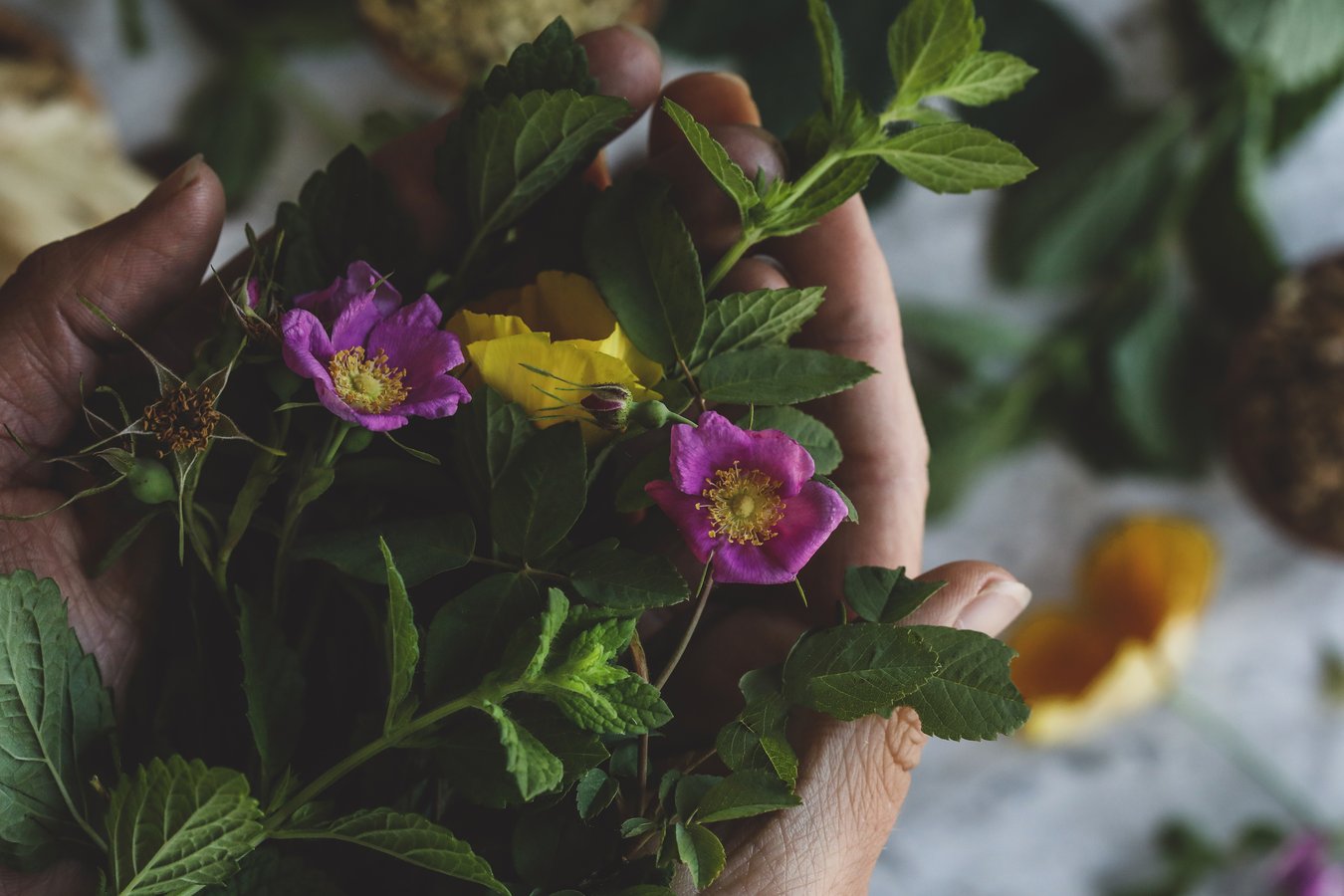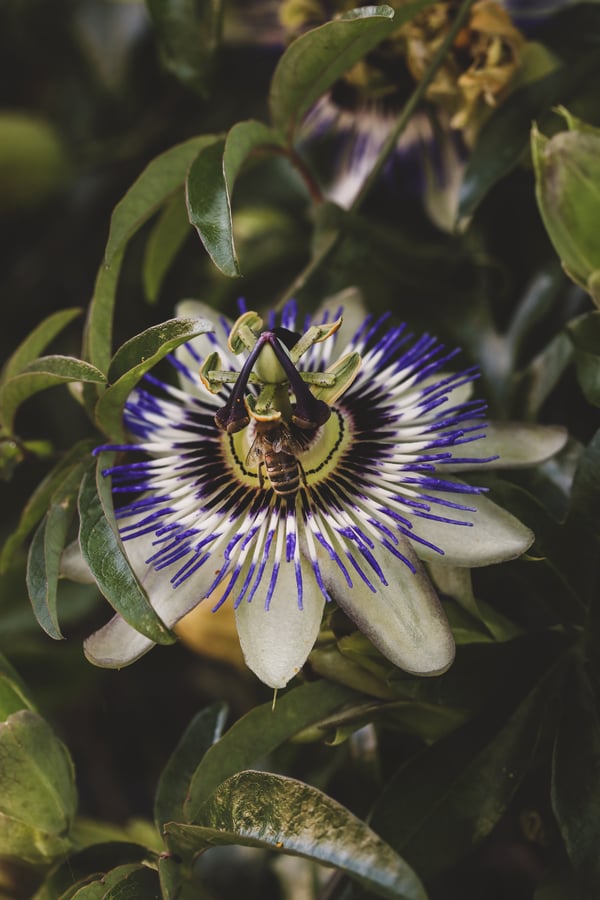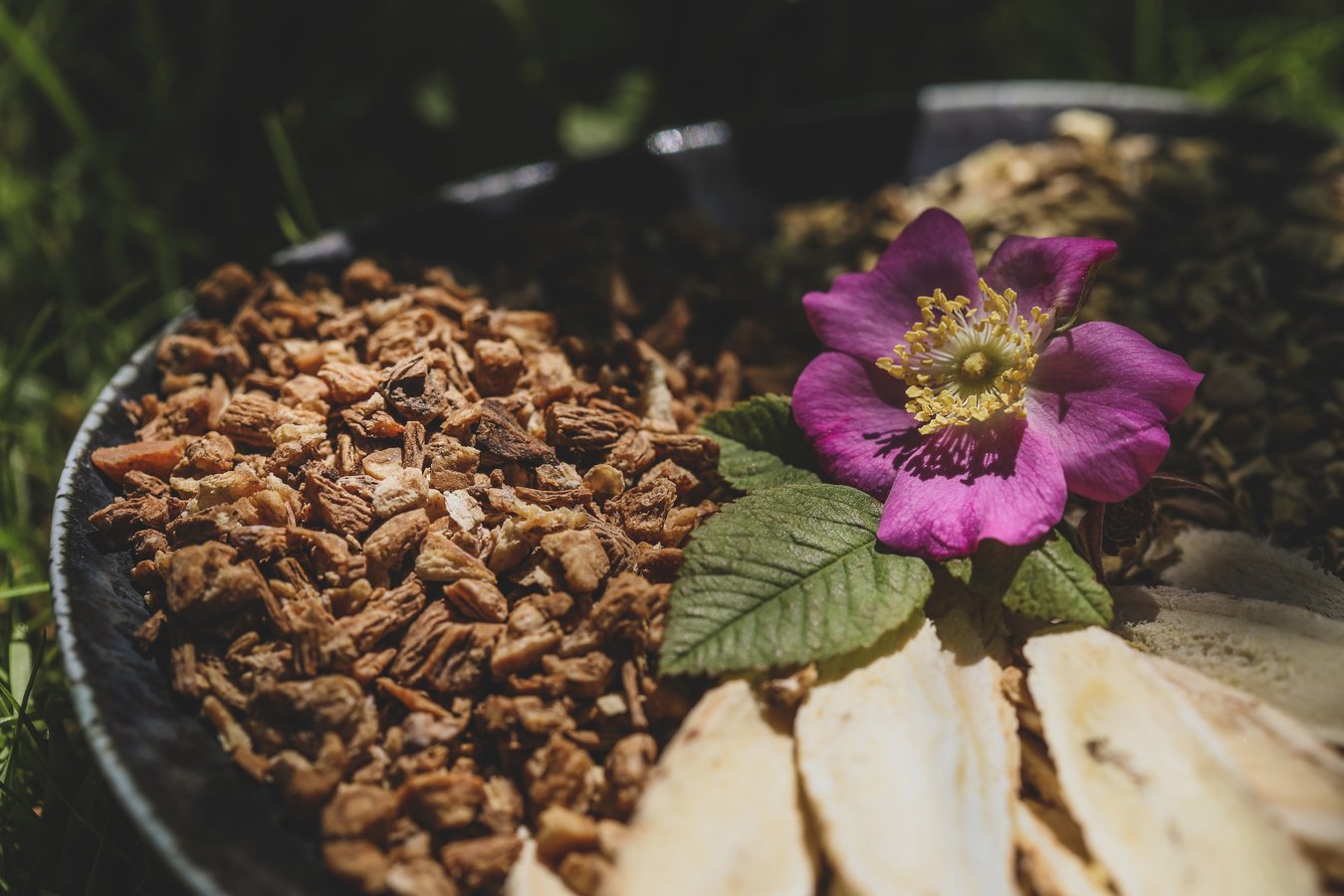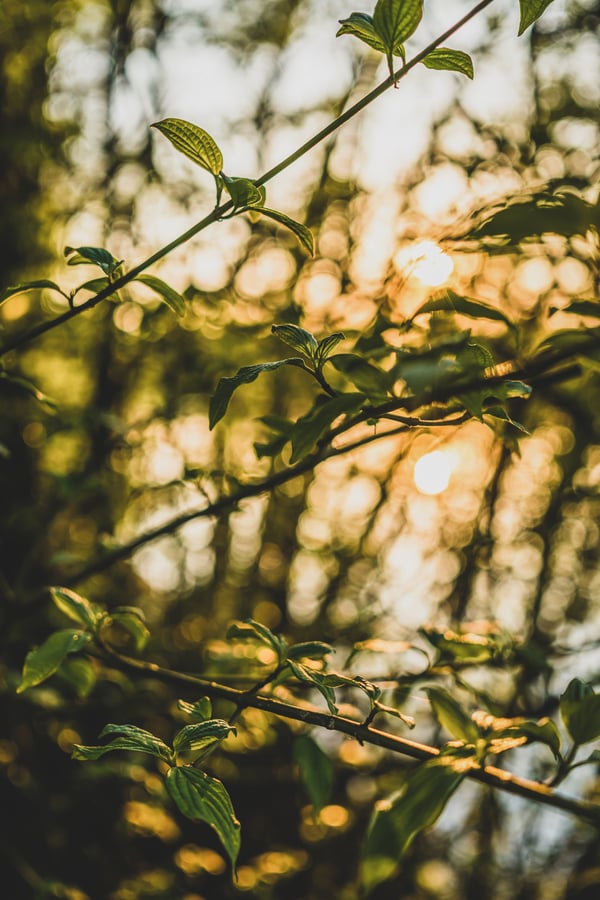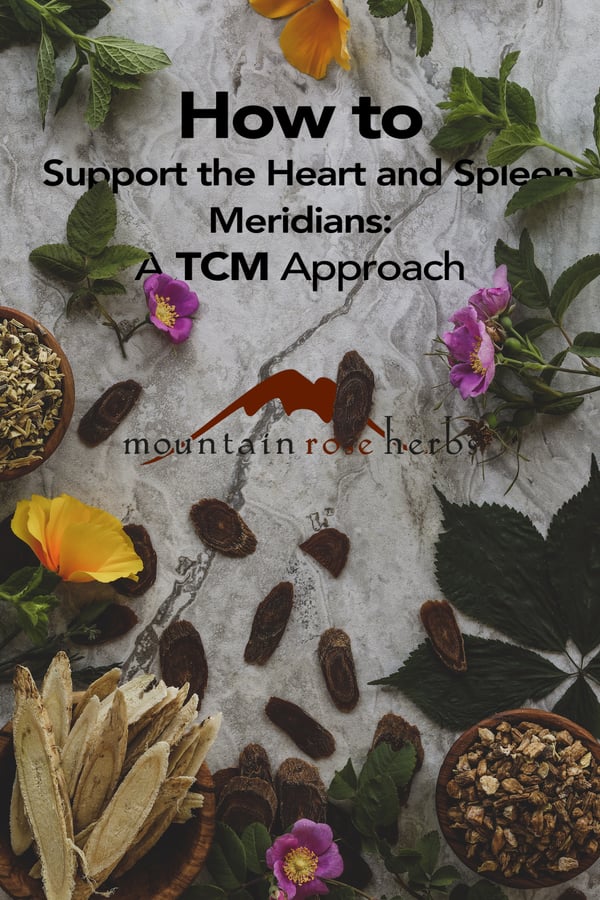As our days lengthen into the summer months, we welcome more time with the sun and fire, the Element associated with summer, according to Traditional Chinese Medicine. Going on vacation with our families, playing with kids, and celebrating with friends, we welcome joyous playfulness into our lives, igniting and inspiring our Shen (神), or Spirit.
When we look someone in the eyes, that leaping flame of connection is their Shen. Each of the Five Elements of Traditional Chinese Medicine has an associated Spirit:
- Water governs the Will (志 zhi)
- Wood nourishes the Hun (魂), or Ethereal Spirit
- Fire governs the Shen (神), or Spirit
- Earth feeds the Intention (意 yi)
- Metal nourishes the Po (魄), or Corporeal Spirit
The Heart
“The Heart is the Emperor,” says the first written compendium of Chinese medicine, the Yellow Emperor’s Classic of Chinese Medicine (黃帝内經 Huang Di Nei Jing) from 2600 BCE. Summer’s fiery heat ignites the Fire element, which governs summer, the Heart meridian, and the Shen. The Shen of the Heart governs the Spirits of the other Elements. A healthy Heart Emperor governs a healthy kingdom. In summer, we celebrate the height of energy and activity. Our Shen is lit!
When in balance, Heart Fire fosters warm heartfelt connections, joyful laughter, and playful camaraderie. Out of balance, too little Heart Fire can simmer down to lack of motivation, empty loneliness, or forlorn sadness. Too much Heart Fire can rage into a manic inferno that burns everything in its path, such as “tearing off one’s clothes and climbing to a rooftop,” as described in the Yi Xue Ru Men (醫學入門) from the Ming dynasty.
Cycles of Generation and Control
The Five Elements of Chinese Medicine generate and control each other in an elegant system of checks and balances, a tenacious interlocking network of supportive cooperation that, when in dynamic equilibrium, mirrors a healthy society. When one part of the cycle is out of balance, it affects the whole system.
In the Five Elements xiang sheng (相生) cycle of generation: Water gives life to Wood, who ignites into Fire, who burns down into Earth, where we extract Metal, which gives rise to Water, as the cycle continues around and around. In other words, the Will of Water gives rise to the Hun of Wood, which blooms into the Shen of Fire, which clarifies into the Intention of Earth, wherein arises the Po of Metal, which innervates Water’s Will.
In the Five Elements xiang ke (相剋) cycle of control, Water puts out Fire, who melts Metal, who cuts down Wood, who stabilizes Earth, who contains Water, and so on so forth. Water’s Will keeps Fire’s Shen in check, as Fire restrains the animalistic Po of Metal, which anchors the ethereal Hun of Wood, which stabilizes Earth’s Intention, which supports Water’s Will.
Fire governs the Heart and Small Intestine meridians. Fire gives birth to Earth, which governs the Spleen and Stomach meridians. When the child is deficient, that also depletes the mother. When Earth (Spleen meridian) is deficient, it can also create Fire (Heart meridian) deficiency.
The Spleen
The Earth element of Chinese Medicine governs the Spleen meridian, seasonal transitions, and “long summer,” (長夏 chang xia), that golden period between summer and autumn, when the weather is perfect, and we start gathering our harvest and celebrating with our communities. With mother Earth’s caring nature, contemplation (思 si) is Earth element’s associated emotion. In balance, we give and take just enough, feeding and being fed by our communities. Out of balance, we keep giving without nourishing ourselves, or think too much about others, bogging ourselves down with worry.
Spleen and Heart Deficiency
If Spleen’s vital energy, or Qi (氣), becomes depleted, then it can drain the Heart. Spleen qi deficiency can manifest as loss of appetite, digestive disturbances, or unexplainable fatigue. Spleen qi deficiency may lead to Heart Blood deficiency with Shen- disturbance symptoms, such as forgetfulness, palpitations, insomnia, dream- disturbed sleep, or anxiety.
Gui Pi Tang Recipe
Gui Pi Tang (歸脾湯), or “Restore the Spleen Decoction,” is a traditional Chinese medicine formula from 1529 that strengthens and nourishes both the Spleen and Heart.
Ingredients
- 6-19 g organic codonopsis root (黨參 dang shen) or 3-6 g Red ginseng root (人參 ren shen)
- 9-12 g organic astragalus root (黃芪 huang qi)
- 9-12 g organic atractylodes rhizome (白朮 bai zhu)
- 6-9 g organic dong quai root (當歸 dang gui)
- 9-12 g organic sour jujube seeds (酸棗仁 suan zao ren)
- 6-9 g organic longan fruit (龍眼肉 long yan rou)
- 9-12 g organic poria fungus (茯苓 fu ling)
- 3-6 g organic polygala root (遠志 yuan zhi)
- 3-6 g organic aucklandia root (木香 mu xiang)
- 3-6 g organic licorice root (甘草 gan cao)
- 5 pieces organic fresh ginger root (生薑 sheng jiang)
- 1 organic jujube date (大棗 da zao)
Cover herbs with one inch of water. Bring to a boil, then simmer for 30 minutes. Strain, and imbibe. You can also reserve marc/leftover-herbs to boil again for a foot soak.
Codonopsis, astragalus, atractylodes, and licorice tonify the Spleen meridian. Dong quai and longan fruit tonifies the Heart meridian. Longan fruit, sour jujube seeds, poria fungus, and polygala root calms the Spirit. Aucklandia is an aromatic root that revives stagnation in the Spleen meridian. The “three candies” of licorice, ginger, and jujube date regulate the Qi and help to unify and facilitate the actions of the other herbs in the formula.
Si Jun Zi Tang
The core of the Gui Pi Tang recipe is based off a classic Spleen Qi tonifying formula, Si Jun Zi Tang (四君子湯), or Four Gentlemen Decoction, from 1107. The “four gentlemen” are ginseng root (人參 ren shen), atractylodes root (白朮 bai zhu), poria fungus (茯苓 fu ling), and licorice root (炙甘草 zhi gan cao). They nourish Spleen and Qi. Atractylodes, poria, and licorice support chief herb ginseng (or codonopsis) to build and tonify: atractylodes help dry dampness (which can manifest as digestive stagnation), poria gently drains dampness (light diuretic), and licorice harmonizes everyone together.
I usually substitute codonopsis root (黨參 dang shen) for ginseng root, at 2-3 times its dosage, due to ginseng’s expensive inaccessibility. Codonopsis is slightly gentler and less warming than ginseng, but still powerful and nourishing, an excellent modern analogue. If you wish to use valuable and slow-growing ginseng, then learn more about different types of ginseng here. Ginsengs are all in the Araliaceae, or ginseng family:
- Red ginseng (Panax ginseng. 人參. Ren shen)
- White ginseng
- Forest- Grown ginseng (Panax quinquefolius. 西洋參 Xi yang shen.)
- Siberian ginseng (Eleutherococcus senticosus. 刺五加. Ci wu jia).
Remember to consult a qualified Chinese medicine practitioner before using these formulas, to assess their suitability for your unique constitution. Chinese medicine practitioners often assess with observation, questioning, pulse, tongue, and/ or palpation. I often combine these formulas with other herbs and lifestyle adjustments to address a variety of health imbalances.
Western Herbal Considerations
Stay cool in the summer. Balance your emotions and activity level! Some western herbal cooling nervines to consider for your summer include:
- Rose petals (Rosa spp., Rosaceae)
- Tulsi(Ocimum sanctum, Lamiaceae)
- Lemon balm (Melissa officinalis, Lamiaceae)
- Chamomile flowers (Matricaria recutita, Asteraceae)
The Huang Di Nei Jing advises us to sleep more in the dark seasons of winter and autumn and sleep less in the green seasons of spring and summer. Even with less sleep needed, remember to take rest, and rest well when it’s time! Some western herbs to consider for sleep include:
- Passionflower aerial parts (Passiflora incarnata, Passifloraceae)
- Skullcap leaf (Scutellaria spp., Lamiaceae)
- Valerian root (Valeriana spp., Caprifoliaceae)
- California poppy (Eschscholzia californica, Papaveraceae)
References
Bensky, Dan. Chinese Herbal Medicine : Formulas & Strategies. Seattle, Wash. : Eastland Press, 1990.
(For more information and inspiration from the author, visit JilingLin.com.)
Looking for More from Jiling?
Read Her Other Seasonally-Inspired TCM posts!
You might also enjoy:
*These statements have not been evaluated by the Food and Drug Administration. These products are not intended to diagnose, treat, cure, or prevent any disease. For educational purposes only

